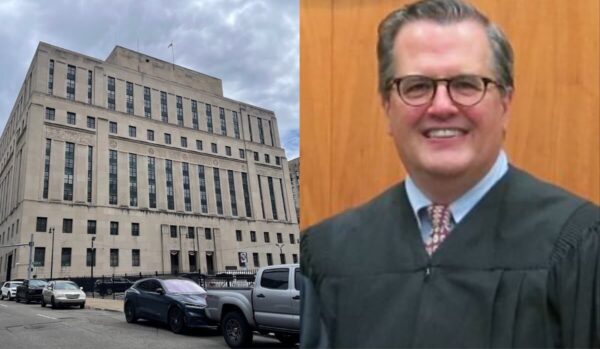A three-judge panel in Michigan has unanimously agreed to vacate a Black man’s 2020 conviction on two federal drug charges after its finding that the judge that presided over the man’s trial and subsequently sentenced him to 10 years in prison violated his right to due process with a comment made in a pre-trial hearing.
In an 11-page opinion from the 6th U.S. Circuit Court of Appeals handed down on Aug. 3, the judges all agreed that Leron Liggins had the right to receive a new trial because U.S. District Judge Stephen Murphy III, who is white, did not recuse himself from the case after saying “this guy looks like a criminal to me” about the defendant during a January 2020 pretrial hearing.

The appellate judges said Murphy did not maintain “the decorum essential to the administration of justice” and “permitted himself to make personal and condemnatory remarks” about Liggins as he stood before him during the hearing.
The panel believed the court could be said to appear biased with the remarks said to the defendant and demonstrated a “clear prejudgment of Liggins’ guilt,” which is a violation of his Fifth Amendment right to a fair trial.
According to the opinion, Liggins did have a history of alleged criminality, including one count of conspiracy to possess with intent to distribute and to distribute heroin in Michigan and one count of possession with intent to distribute a controlled substance in Kentucky.
In the Kentucky case, Liggins said he wanted to plead guilty to the crime he was accused of.
He then asked for the case to be moved to a different court in Michigan using a legal rule called Federal Rule of Criminal Procedure 20(a). The court in Kentucky agreed and sent the case to Michigan, where Liggins was to confess and get his punishment. This new court also was handled by the same judge who’s also in charge of the other case involving Liggins.
During this process, Liggins let go of his previous representation and agreed to have a district court-appointed Criminal Justice Act panel attorney. He was given lawyer Joseph Arnone in June 2019. By December 2019, the defendant filed a motion to get new representation, expressing he was dissatisfied with Arnone.
The district judge would not approve Liggins’ request for a new lawyer, saying he was “tired of this case.”
He then implied that he believed Liggins’ desire to fire his public defender was a strategy to prolong the case or mislead the court.
“When Liggins responded by saying ‘No, I don’t—I’m not represented,’ the district judge responded: ‘You are represented. And if you speak anymore, I’ll have you hauled out of here,’” the court document read.
The judge then said in pre-trial, “This guy has got my attention, Mr. Arnone. What do you want me to do? This guy looks like a criminal to me. This is what criminals do. This isn’t what innocent people who want a fair trial do. He’s indicted in Kentucky. He’s indicted here. He’s alleged to be dealing heroin, which addicts, hurts, and kills people, and he’s playing games with the Court. Do you agree?”
After these remarks were made, Liggins asked for recusal of the judge, but that was denied, and he was eventually sentenced to a decade in prison. Murphy not recusing himself violated Liggins’ constitutional right to a fair trial.
The judges said that there was no way that Liggins received a “fair administration of justice” before vacating the conviction and sentence. They also said that the judge made receiving a “fair judgment impossible” before reassigning the case to another district judge on remand.
The panel didn’t address Liggins’ evidence concerns and did not say he did not commit the crimes he was indicted for. However, with the vacated conviction, they opened the door for federal prosecutors to seek a new trial and for him to receive a fair one.


